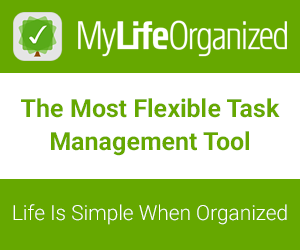The average person will change jobs around 12 times during the course of their career. Many people will spend less than five years in each job before moving on. Add to this the fact that portfolio careers are becoming more popular and it’s clear that for many people, job satisfaction is absolutely crucial to leading a healthy and happy life.
Unfortunately, it’s also a fact that for many people, job satisfaction is simply non-existent. Studies vary on rates, but some suggest that more than half of workers are unsatisfied with their jobs. Do you really want that to be you? Of course you don’t. Still, if you’re thinking of changing careers, you should be careful.
Changing careers isn’t always the delightful new adventure it sounds like it should be. There are plenty of pitfalls you need to avoid and things you need to consider if you want to change your career. We’re here to help. Here are 7 things you must consider before you change careers.
Your financial situation
We know it sounds obvious, but you’d be surprised how many people simply don’t consider their financial situation before changing careers. If you don’t have enough money stored away, you’re going to find the wilderness years between careers very difficult indeed. Before you change, make sure you’ve got money.
There are several ways to do this. You could check out a good loan company. If you’ve got a career in mind and you know where you’re headed, a loan can be a good way to keep yourself afloat while you wait. You could talk to your family, sell some unwanted stuff in your home, or simply save and dream. Just make sure you think about your money.
Your happiness
Before you make any sudden decisions, think seriously. Is a career change really the thing that’s going to make you happy? Once you’re in a new job, will you find the happiness you’re lacking in your current one? Or are you merely taking your unhappiness with you into a new setting?
There’s an easy way to tell whether this is the case. Are all the things you’re unhappy about specifically to do with your job, or are they broader? For example, if you don’t feel you’re making a difference in the world, that’s job-related. If your depression is deeper and more personal, that might not be your career talking.
Your family
If you have a family, they’re an extremely important factor in your career change. Do you want to work from home? Are any of your family members dependent on your income for survival? Do your family benefit in any other way from your career? What would they think about a career change?
Obviously, if your mental health is being impacted or you’re severely unhappy, your family should support you. Still, you should talk to them about your impending career change. They could have valuable advice to offer you, and even if they don’t, the moral support will be crucial as you enter a new phase in your life.
Your ambitions
What do you actually want from life? Do you have a set career path in mind, or are you simply bored of your current job? These are things that you need to think about before your career change. It could be the case that your current job, however boring it might be, would be a better route to your goal than a new one.
If you’re planning to move careers to get closer to your life goal, make sure that’s something you’re actually doing rather than simply dreaming about. A new job can look enticing when your current one feels oppressive, but you don’t want to make the switch and end up just as frustrated as you are right now.
Your abilities
It sounds harsh, but before you move careers, you need to conduct an honest and thorough assessment of your abilities. Are you experienced enough to move jobs without finding the application process difficult? Do you think you’ll be able to do any other jobs besides what you’re currently doing? Could you be a better candidate?
If your assessment comes up short, there are plenty of things you can do. Even if you’ve accepted a new job and feel you won’t be able to do it, you can take steps. Come prepared with a thorough knowledge of your duties and eagerness to do them and you’ll find the rest comes naturally.
Your new company
Even if the opportunity before you looks like a no-brainer, it pays to do some serious research into your new company. Is this really the company that will help you climb to where you want to be? Will this company definitely represent the new start you need? There are lots of factors at play here.
It’s not just the job itself. The culture of a new workplace is also crucial. It’s no good starting a new career only to realise that your new workplace is toxic and not conducive to a good atmosphere. A new career is of course important, but only if it brings happiness, and a bad company won’t make you happy no matter how good the job is.
Your connections
So, you’ve decided that you definitely want to change career. Think about the people you know. Is there anyone in your life who could help you make that shift? If someone you know is in the industry in which you want to work, it can’t help to ask if there’s anything they can do to give you a leg up.
Some industries will naturally lend themselves to this better than others. Connections will always help, though. Your friends could tell you which companies are good and which ones aren’t, or which jobs to avoid and which ones to go for. Stick with your friends and your new career will feel that much less daunting.
Image Credits: Saulo Mohana




Like this article? Share with your friends!